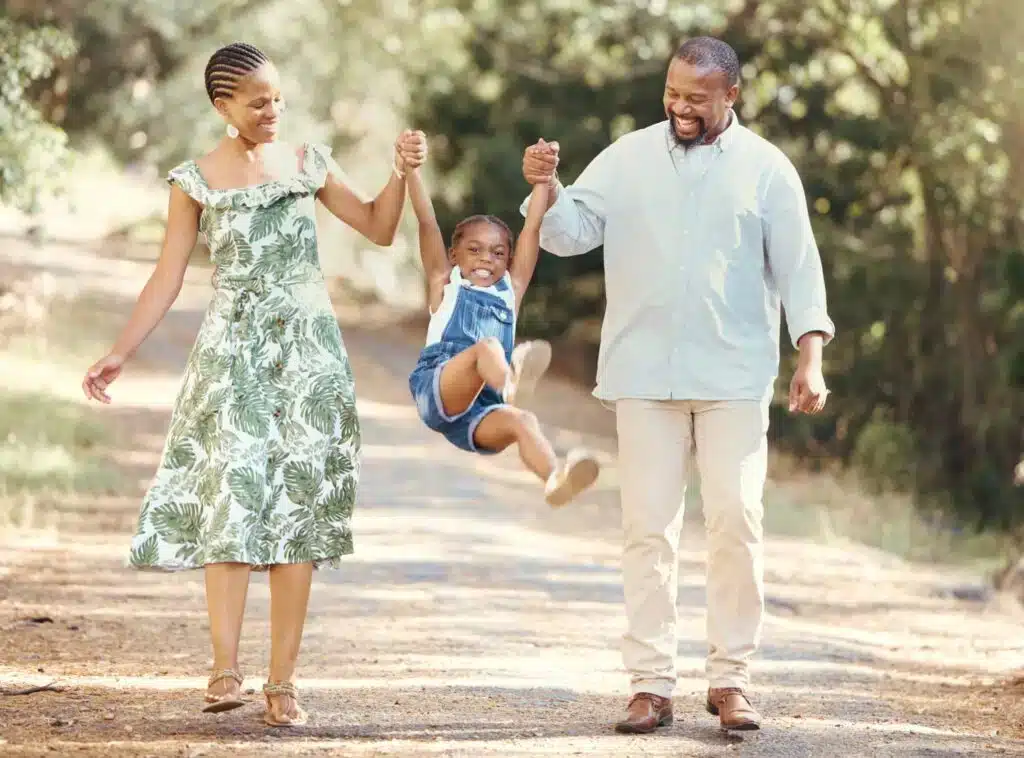
We’ve always made giving Caloundra residents access to the best legal assistance our main priority. We want to empower you to understand the legal system in Caloundra and the community resources. Family law is a broad area. There are a lot of processes handling divorce, as well as property and parenting issues. After working with hundreds of clients over the years, we’ve developed significant experience across the breadth of family law.
Key takeaways
- Caloundra is covered by federal family law legislation and state regulations.
- Amendments to family law also have important implications for Caloundra residents.
- Ferrall and Co. provides services across many aspects of family law.
- There are many resources available for Caloundra community members.
- Our team can assist with complex cases to save clients time and emotional hardship.

Family law legislation
The family law in Caloundra follows federal and Queensland legislation. Laws affecting Caloundra residents include the following.
Family Law Act 1975
The Family Law Act applies Australia-wide. It covers most family law issues (as you would expect), such as:
Divorce
Parties can apply for a divorce if they meet citizenship or residence requirements and a 12-month separation. They can pursue a divorce jointly with their spouse or as a sole applicant.
Property settlement
Property orders are assessed through the Family Law Act’s four-step process to ensure a ‘just and equitable’ division. The act also sets out the legal requirements for binding financial agreements.
Parenting arrangements
Parenting orders are organised according to the best interests of the child. They cover caring responsibilities and long-term decision-making.
Spousal maintenance
The Family Law Act governs when spousal maintenance is granted. It outlines the criteria that make a party eligible for financial support.
Independent children's lawyers
The Act specifies the role of independent children’s lawyers. It outlines the scope of their duties and when their services are required.
Domestic and Family Violence Protection Act 2012
The Domestic and Family Violence Protection Act is the main law in Queensland governing domestic violence issues. It defines domestic violence and operates alongside the Family Law Regulations 1984 to ensure family-related matters and protection orders are handled consistently.
Protection for victims
The Act assists victims through protection orders. These can be granted on an interim or final basis. Police may also issue a police protection notice on an immediate short-term basis. A protection order can protect the aggrieved, a child, or a relative of the aggrieved. In some cases, arbitration may be used to resolve disputes related to protection orders, ensuring a fair and efficient process for all parties involved.
Hold the respondent accountable
Anyone would agree that the safety of victims should be the priority. However, that’s only half the story. Rehabilitating perpetrators is an important part of tackling the issue of domestic violence. The Court may help achieve this by making intervention orders that require an offender to complete counselling or another program.
Child Protection Act 1999
The Child Protection Act provides the framework for the Court, government agencies, and families to protect children against abuse.
Child protection order
A child protection order can be made by the Children’s Court if the child has been harmed or is at risk of harm. These protection orders can take different forms:
- Directive order. The respondent is required to perform some action for the child’s care.
- Supervision order. This requires the Department of Child Safety, Seniors and Disability Services (DCSSDS) to supervise the child’s care.
- Custody order. The DCSSDS or a family member is directed to have responsibility for the child’s daily care.
- Guardianship order. A suitable party is given parental responsibility for the child’s daily care and long-term decisions.
Protection orders can take different forms, depending on the child’s circumstances and needs. The Court follows strict regulations to determine the appropriate order. In certain situations, arbitration or mediation may resolve disputes effectively and in the child’s best interests.
Family Law Regulations 1984
The Family Law Regulations 1984 supplement the Family Law Act and are administered by the Attorney-General’s Department. The regulations prescribe legal procedures in courts with jurisdiction under the Family Law Act.
These regulations establish several critical matters. These include how courts refer matters in dispute, procedural requirements, and specific provisions under the Family Law Regulations 1984 to ensure compliance with legal standards. Some of the areas covered are the following:
- How to perform parentage testing.
- Registering overseas child-related orders.
- Assigning legal jurisdiction to specific state and territory courts.
- Regulating who may perform family law arbitration.
- Specifying state and territory agencies for the proper operation of the law.
Family law amendment
The Family Law Amendment Act 2023 removed the presumption of equal shared parental responsibility between separated parents. The Court no longer assumes equal shared responsibility in long-term decision-making when making parenting orders. This improves its ability to help parties find the right parenting arrangement, whether through family law arbitration or by obtaining legal advice to navigate their options effectively.
The changes prevent harmful litigation and ensure that decisions about parenting arrangements are made in the child’s best interests. These reforms also extend protections to de facto relationships, reinforcing fair and effective legal practices.
The Family Law Amendment Act 2024 makes further changes related to property matters, including:
- Violence is a clearer consideration in determining property division.
- Clarifying that economic abuse is a recognised part of the definition of violence.
- Promoting a less adversarial approach to property matters by the Family Court.
- Including the duty to disclose in the Family Law Act rather than the Family Law Rules.
Our family law services
Ferrall and Co. provides a range of services, from professional family law advice to representation during lengthy court proceedings. Here are the family law processes we may help you with.
Divorce process
These are the essential steps for applying for a divorce.
Step one: Check your eligibility
You must reside in Australia legally and either be an Australian citizen or consider Australia your permanent home. You may need evidence, such as:
- A citizenship certificate.
- A passport.
- A valid visa.
Step two: Gather the necessary documents
Make sure you have your marriage certificate. You can replace a lost marriage certificate through the Registry of Births, Deaths and Marriages. A certificate in a foreign language must be translated by a NAATI-accredited translator.
Step three: Complete the mandatory separation period
You have to be separated for at least 12 months before you’re eligible to apply for a divorce. You may continue to cohabit during this time. This arrangement is called ‘separated under one roof’ and requires both parties to fill out an affidavit detailing how the relationship has changed since the separation.
Step four: Begin the divorce application
The Family Court accepts divorce applications online through the Commonwealth Courts Portal. Applications can be made jointly or by a sole applicant. There are specific requirements for each method:
- Joint application. This is the easiest way to secure a divorce. The application can be submitted once both parties sign the Affidavit of eFiling.
- Sole application. A sole applicant must serve the divorce documents on their former spouse. If they have children under 18, they must attend the divorce hearing before receiving a divorce order.
Parenting matters
Our Sunshine Coast family lawyers can assist you with resolving parenting matters with your former partner. Here are your options.
Parenting plans
A parenting plan is an informal agreement. Parenting plans may benefit co-parents who are on good terms. However, informal agreements are easily challenged in court. It’s useful to get practical advice from a family law solicitor when drafting your plan.
Family consent order
Parenting plans can be submitted to the Court to be turned into a consent order. This makes the agreement legally enforceable. The Court assesses parenting consent orders by considering what’s in the best interests of the child.
Child custody court proceedings
If parents can’t come to an agreement, litigating child custody in court is a last resort. Parenting orders can only be sought once the parents have completed mandatory family dispute resolution. Get clear guidance from a leading family law firm for the best outcome.
Property settlements
A fair outcome in property matters is crucial to a party’s future financial security. Our experienced family lawyers can assist clients in a variety of ways.
Binding financial agreements (BFA)
You don’t need to go through the Court to legally divide your assets. With a BFA, you can make a private agreement. This gives you more control over the arrangement. But when you have more flexibility, you’ve also got more to lose. You’re required to seek legal advice first, so you don’t act against your best interests.
Financial consent order
If you’ve agreed to a division of assets, you can apply for a consent order. The Court considers all financial orders with a four-step process:
- The asset pool is identified and valued.
- Each party’s contributions to the marriage are considered.
- Each party’s future needs are accounted for.
- The Court makes a final determination about the order’s fairness.
Property division through legal proceedings
Parties can’t always agree on a property division. They can ask the Court to determine the settlement instead. It uses the same four-step process that’s used to create consent orders. Litigation is typically seen as a last resort, and for good reason. It usually takes more time and money than amicable solutions.
Domestic violence
Our legal team has many years of experience working through sensitive family violence cases. The legal system uses various mechanisms to protect victims.
Police protection notice
The police can issue a protection notice when they respond to a domestic violence situation. This notice restricts the offending party from engaging in any further abusive behaviour. The notice applies until the matter can be heard in court.
Protection order
A protection order safeguards the aggrieved party for the long term. If not explicitly stated by the Court, a protection order generally applies for five years. All orders contain certain standard conditions, including:
- Be of good behaviour toward any adult or child named in the order.
- Do not commit domestic violence against any person named in the order.
- Do not expose a child named in the order to family violence.

Resources for Caloundra residents
Caloundra has many resources for residents. If you’re going through a legal issue, you may engage some of these services.
Counselling
Life Support Counselling
Life Support Counselling is a leading mental health support service. From their Caloundra office, they help individuals or families work through major long-term issues such as anger management and parenting.
Caloundra Community Centre
The Caloundra Community Centre provides a range of services. Families with young children can access early intervention programs to address major long-term issues. Non-interest loans of up to $1200 can also help struggling families meet directly with support services tailored to their circumstances.
Community members can also get mental health support from trained social workers. Social workers can assist with navigating relevant provisions and establishing a suitable agreement for ongoing care and assistance.
Domestic violence support
Kyabra
Kyabra operates a mobile domestic and family violence service for victims on the Sunshine Coast. They offer short-term outreach to help women and children with safety planning. They can also assist women with sustainable tenancy options from a Caloundra office.
Centacare
Centacare provides support for victims of violence. They offer counselling for individuals, parents, and families, as well as family dispute resolution. Their staff can also assist with legal processes, including court attendance for domestic violence issues.
DVConnect
DVConnect offers critical services for both victims and perpetrators of violence. They can organise emergency transport and accommodation. They operate helplines for men and women:
Mensline: 1800 600 636
Womensline: 1800 811 811
Their team also works with businesses to educate people on violence in the workplace.
Free legal advice
Legal Aid Queensland
Legal Aid Queensland can provide low-income parents and individuals with legal advice through their advice line on 1300 65 11 88. They may also subsidise access to legal representation for eligible applicants. Legal Aid services can assist with legal agreements, arbitration processes, and the registration of legal documents.
Suncoast Community Legal Service
Suncoast does great work addressing disadvantage on the Sunshine Coast. They provide educational resources and referrals to law firms. They work with a large team of volunteers to help clients clarify legal issues and understand legal procedures.

Case study
Ferrall and Co. provides expert family law assistance to people looking to obtain legal advice.
Cherries well exceeded my expectations doing a fantastic job of creating an affidavit and supporting me at trial.
She was able to highlighting 4.5years of 2 different court processes plus clearly explain in dot point the trauma I had been experiencing.
This was all done in 1.5 weeks.
I was concerned as I had her legal aid and had a lot of bad experiences in the past and I had always found it challenging to explain and help professionals understand such a complex case which had large amounts of documentation. I would highly recommend Cherries.
- Alira De Palma
Alira's story highlights important aspects of how we approach cases:
- We have complete empathy for our clients in their most difficult times.
- We can find a suitable course of action, regardless of a case's complexity.
- We want to rekindle people's faith in the legal system.
Conclusion
You’re not alone if you find family law complicated. It’s important to remember that you don’t have to face legal challenges alone. There are free legal resources available in Caloundra. Our professional assistance can be invaluable to clients, regardless of the complexity of their legal position. Whether you’re married or in a de facto relationship, our Sunshine Coast law firm can provide compassionate guidance across all areas of family law.
Thanks Rowena, from Ferrall & Co Lawyers for your very knowledgeable friendly professional attitude to getting my case solved.
Would highly recommend her to anyone needing legal advise or court representation.
- Shane Gibbs
Our family law team is waiting to help. If you’re looking for family legal assistance, contact us today.





